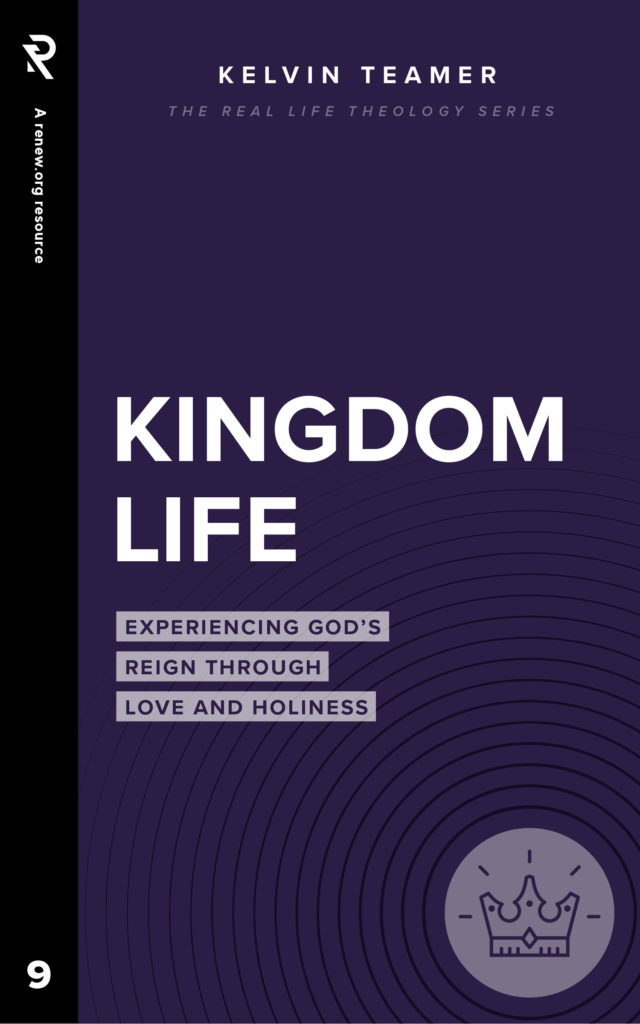
The Kingdom of God in the New Testament
What is the kingdom of God in the New Testament?
If we see the concept of the kingdom of God introduced in the Old Testament Scriptures through the story of Israel, then we see it fulfilled in the life of Jesus of Nazareth in the New Testament. As we look at Jesus, it should be noted that in order to understand and define the kingdom of God, we can’t divorce ourselves from the story of ancient Israel. Jesus is the grand connector of both Israel and the kingdom, for he is the fulfillment of the story of ancient Israel and the true king in the kingdom of God.
Jesus not only spoke often about the kingdom, but his entire ministry focused on the kingdom. From the preparatory ministry of John the Baptist, who announced that the kingdom of heaven (synonymous with the “kingdom of God”) was at hand in Matthew 3:2, to the Great Commission of Matthew 28:18–20, we see vivid examples of the divine monarchy breaking through on earth through the life of Jesus.
The Gospel of Matthew details the beginning of Jesus’ earthly ministry:
“From that time Jesus began to preach, saying, ‘Repent, for the kingdom of heaven is at hand.’” (Matthew 4:17, ESV)
Then, in Matthew 4:23, we read that after Jesus called his first disciples, “he went throughout all Galilee, teaching in their synagogues and proclaiming the gospel of the kingdom, and healing every disease and every affliction among the people” (ESV). If Jesus’ synagogue experience was similar to the one Luke narrated in Luke 4:16–19, then Matthew was describing the ways Jesus demonstrated in word and deed what the kingdom of God was all about.
“Jesus is the fulfillment of the story of ancient Israel and the true king in the kingdom of God.”
Jesus’ words help us to gain clarity on the mystery of the kingdom. They will allow us to define the kingdom of God by enabling us to connect it to something observable. He helps us transport something that might be viewed as theoretical into something tangible. In other words, Jesus helps us take something from the pages of the Bible and see how it could be lived out in everyday life. He takes something that was two-dimensional for us and makes it four-dimensional.
Jesus said:
Pray then like this:
“Our Father in heaven, hallowed be your name. Your kingdom come, your will be done, on earth as it is in heaven.” (Matthew 6:9–10, ESV)
“But seek first the kingdom of God and his righteousness, and all these things will be added to you.” (Matthew 6:33, ESV)
“Not everyone who says to me, ‘Lord, Lord,’ will enter the kingdom of heaven, but the one who does the will of my Father who is in heaven.” (Matthew 7:21, ESV)
“Your kingdom come, your will be done, on earth as it is in heaven.”
To illustrate this movement from “theoretical to tangible,” allow me to diagram two of these texts. Matthew 6:10a says, “Your kingdom come, your will be done.” This phrase does a lot to define what the kingdom of God meant to Jesus. The word kingdom in these texts is the Greek word basileia, which means “realm” or “rule.” For Jesus, the kingdom was the realm where God’s will would be done.

Where would this take place?

Now, let’s look at Matthew 6:33 again. Here, Jesus says to “seek first the kingdom of God and his righteousness” (ESV). Within this imperative, we find a way to see the kingdom of God on earth. The righteousness of God that mankind is to seek comes through obedient and faithful behavior, which ultimately models the life of Jesus.

When we look at all these Scriptures combined, we see that the kingdom is the realm where the righteous will of God is being done on earth as it is in heaven.
As Matthew 4:23 indicates, whenever Jesus came into a town, he brought the message and manifestation that God’s righteous will was being done on earth as it was in heaven. Not just through words but also through actions. We see the emphatic stamp of this rule over brokenness on Calvary. Jesus overcame all demonic powers, and the fate of the ruler of this world—Satan—was finally sealed at his hands (and feet) when he was crucified.
The Kingdom of God in the New Testament: “The kingdom is the realm where the righteous will of God is being done on earth as it is in heaven.”
Jesus’ death brought forgiveness and deliverance, not just from a salvation perspective, but from an end times perspective. It symbolized deliverance from Israel’s exile and from the separation of a nation from its God. The cross extended beyond the borders of Israel and brought fulfillment to something uttered to Abraham centuries before—that in Abraham (through his seed) all families of the earth would be blessed (Genesis 12:1–3). Through the life of Jesus, promises were coming true. Righteousness was reigning. Jesus was ruling.
Jesus said in Matthew 28:18, “All authority in heaven and on earth has been given to me” (ESV). In the realm where God’s will was being done, Jesus had all authority.
In other words, Jesus is the king of the kingdom!
Putting the Pieces Together
We can begin finding the answer to the question, “What is the kingdom of God?” by putting together the pieces of Jesus’ ministry and proclamations we’ve covered so far. In summary, the kingdom of God is the reign of God over the brokenness of humanity, through Jesus. It is God’s will being done on earth as it is in heaven, through Jesus. It is the righteousness of God poured out over the world that he created, taking place through Jesus. Karl Barth said, “The kingdom of God was more or less God ruling.”[1] I would agree with Barth; however, I think it is important to add that it is God ruling through Jesus and that the kingdom brings the joy, peace, righteousness, and deliverance that would come through such a Messianic reign.
God’s kingdom exists on the earth, but at the same time, his kingdom won’t be fully consummated until eternity dawns. It is a present and eternal kingdom at the same time. In either case, Jesus is on the throne.
The Kingdom of God in the New Testament: “God’s kingdom exists on the earth, but at the same time, his kingdom won’t be fully consummated until eternity dawns.”
As George Eldon Ladd states,
“Fundamentally, as we have seen, the Kingdom of God is God’s sovereign reign; but God’s reign expresses itself in different stages throughout redemptive history. Therefore, men may enter into the realm of God’s reign in several stages of manifestation and experience the blessings of His reign in differing degrees. God’s Kingdom is the realm of the Age to Come, popularly called heaven; then we shall realize the blessings of His Kingdom (reign) in the perfection of their fullness. But the Kingdom is here now. There is a realm of spiritual blessing into which we may enter today and enjoy in part in reality the blessings of God’s Kingdom (reign).”[2]
This reign affects our lives when our hearts are surrendered to the kingship of Jesus. This surrender brings peace, righteousness, and deliverance into the life of the believer. When this happens, the old way of existence is buried, and a new life is born. This kingdom reign begins when we surrender to God in baptism (see Acts 2:14–41).
The kingdom of God in the New Testament: “This reign is at the heart of what it means to be a disciple of Jesus.”
This reign is at the heart of what it means to be disciples of Jesus. We seek God’s kingdom reign as we trust and follow Jesus as king. When we make disciples, we are gathering people into the kingdom reign of the One who has all authority, who sends us to make other disciples, and who tells us that as disciples we are to obey all of his teachings (Matthew 28:18–20). Making disciples of Jesus is actually the core mission of the church on earth.
[1] Karl Barth, The Christian Life (Grand Rapids: Eerdmans, 1981), 233–260.
[2] George Eldon Ladd, The Gospel of the Kingdom: Scriptural Studies in the Kingdom of God (Grand Rapids: Eerdmans, 2011), 22.
Excerpted from Kelvin Teamer, Kingdom Life: Experiencing God’s Reign Through Love and Holiness (Renew.org, 2021).









